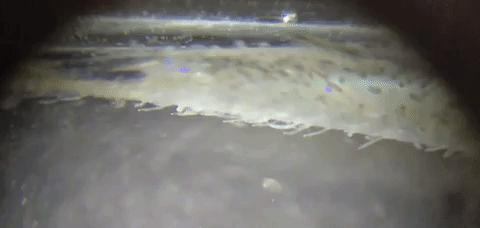Avoiding infectious disease is a protective instinct in humans and animals but the instinct to socialize often wins the day

Credit: Jess Stephenson
PITTSBURGH–Staying away from those with contagious infections, no matter how lonely it gets, may not only be common sense, but a natural instinct. But that doesn’t mean humans or animals will automatically fall in line.
A study by Jessica Stephenson, head of Pitt’s Stephenson Lab of Disease Ecology and Evolutionary Parasitology, examines the behaviors of guppies when introduced to an environment where they are placed near members of their species with infectious diseases. In the study an empty tank was flanked by one that contained a group of three guppies that represented potential contagion risk. Many guppies preferred the tank near other guppies, as expected from a social species. But some male guppies strongly avoided the side of the tank near the other fish and these distancing guppies were later shown to be highly susceptible to worm infections.
Stephenson and coauthors revisited these findings in light of COVID-19 in the article “Emerging Infectious Disease and the Challenges of Social Distancing in Human and Non-Human Animals,” which published Aug. 12 in the Proceedings of the Royal Society of London, Series B.
Stephenson said human beings overall are “normal social animals in many of our behavioral response to infectious diseases” but benefits such as “global disease surveillance, rapid global communication and centralized governments with public health departments,” may be wasted if we choose our social instincts over the evolutionary instinct that tells us to stay away from areas of potential infection.
“That the vast majority of our species has largely squandered the potential payoffs of these benefits is again consistent with other social animals: the cost of social distancing itself can outweigh the cost of contracting the disease,” Stephenson said. “For some, no amount of Zoom and FaceTime can make up for the lost benefits of social interactions. These frustrating, if wholly natural, behavioral decisions will result in the persistence of COVID-19 until the advent of perhaps our greatest advantage over other species facing emerging infectious diseases: vaccination.”
###
Media Contact
Deborah Todd
[email protected]




